BHEF Members Announce the National Higher Education Workforce Initiative and Collaborate on 21st Century Workforce Competitiveness Needs at Winter Meeting
Washington, D.C. (March 5, 2013) – The Business-Higher Education Forum (BHEF) launched its National Higher Education and Workforce Initiative (the “Initiative”) at its Winter Meeting, where featured sessions centered on action-oriented solutions for enhancing business-higher education collaboration and scaling, improving 21st century workplace competencies, and adopting disruptive technologies. Speakers included BHEF members and leaders from McKinsey, IBM, the Gates Foundation, and Coursera, among others.
Integrating its two long-standing initiatives, STEM and the College Readiness, Access, and Success Initiative (CRI) into a single platform, the Initiative allows business and higher education to collaborate and to create new higher education pathways to careers in emerging fields.
Intensive project development and system dynamics modeling over the past five years have produced powerful insights that have enabled BHEF to deploy a model of strategic business engagement in higher education to address America’s workforce needs. Additionally, BHEF has developed a comprehensive strategy to scale these solutions nationally and focus on the structural misalignment in the U.S. education and workforce pipeline. The result is the Initiative, through which BHEF members align a broad array of impact levers to launch and support a national network of workforce projects, each focused on a region’s specific workforce needs.
In June 2012, as part of the Initiative’s initial roll-out, BHEF presented its first cohort of twelve workforce projects. BHEF plans to scale the Initiative through a multi-faceted approach: (a) launch second and subsequent cohorts in 2013 and beyond; (b) create and link networks of campuses working in common fields; (c) add projects within BHEF members’ university systems; and (d) complement those with projects developed in partnership with national industry and academic associations.
BHEF Chair Wes Bush, chairman, CEO, and president of Northrop Grumman Corporation, opened and framed the meeting by outlining the magnitude of workforce needs, and its impact on American competitiveness. Stating that, “The solutions we embrace will determine the success of future generations and the health of our economy,” Bush explained that BHEF’s Initiative would create important strategic partnerships that “turn solutions into results and increase the pace of innovation.”
“This meeting served as the ideal venue to premiere the National Higher Education and Workforce Initiative,” said Brian Fitzgerald, CEO of BHEF. “With the support and feedback we received from our business and academic members, BHEF has developed a unique and innovative scaling strategy to maximize the impact of our members’ higher education and workforce projects across the country.”
BHEF Vice Chair Barbara Snyder, president of Case Western Reserve University, moderated a panel that examined how emerging fields, such as data science and analytics, are re-shaping workforce needs. BHEF members Roger F. Ferguson, Jr., president and CEO, TIAA-CREF and Jeff Wadsworth, CEO, Battelle joined Mona Mourshed, director of McKinsey’s education practice and Dr. Seshadri Subbanna, director of IBM’s Innovation and Technology Evaluation division, to explore the manner in which the U.S. education workforce pipeline is adapting to fields that did not exist less than a decade ago. They also illustrated the education-to-workforce barriers that hinder transitions into emerging fields.
Building on the discussion of members’ insights gleaned from business and academic members’ collaboration to develop the first cohort of education and workforce projects and planning for the second cohort, and a facilitated lunch conversation framed a case for developing on 21st century workplace competencies in undergraduate programs. The panel¾BHEF members Larry Zimpleman, chairman, president, and CEO of the Principal Financial Group, John Veihmeyer, chairman and CEO, KPMG, and Ana Dutra, CEO, Leadership and Talent Consulting, Korn/Ferry¾honed in on business’ global mind set. Noting how the market has shifted, the group depicted how the international economy is driving a new business model and influencing how companies hire. Specifically, new employees no longer have the luxury of developing these competencies (ability to communicate; work in teams; analyze and problem solve) over time; they must be prepared to work across cultures and functions effectively from Day One.
A learning session led by BHEF immediate past chair Brit Kirwan, Chancellor of the University System OF Maryland, focused on higher education and disruptive technologies. Along with BHEF member Molly Corbett Broad, president, American Council on Education, guest panelists Dan Greenstein, director of Education and Postsecondary Success (U.S.), Bill & Melinda Gates Foundation, Kevin Guthrie, president, ITHAKA, and Daphne Koller, co-founder, Coursera, members discussed how MOOCs and other forms of online education will impact not only the industry of higher education, but also the ways in which students learn skills and prepare for careers.
BHEF hosts semiannual member meetings for its senior business and higher education executives, to discuss emerging priorities and advance its ongoing work. This was the largest meeting to date, with over 120 members and invited guests.
About the Business-Higher Education Forum
Now in its 35th year, BHEF is the nation's oldest membership organization of Fortune 500 CEOs and research university presidents dedicated to advancing innovative education and workforce solutions and improving U.S. competitiveness. BHEF's business and academic members collaborate in regions across the country to design and deploy education-workforce solutions in the high-demand and emerging fields that are so critical to innovation and national security. BHEF and its members drive change locally, work to influence public policy at the national and state levels, and inspire other leaders to act.
